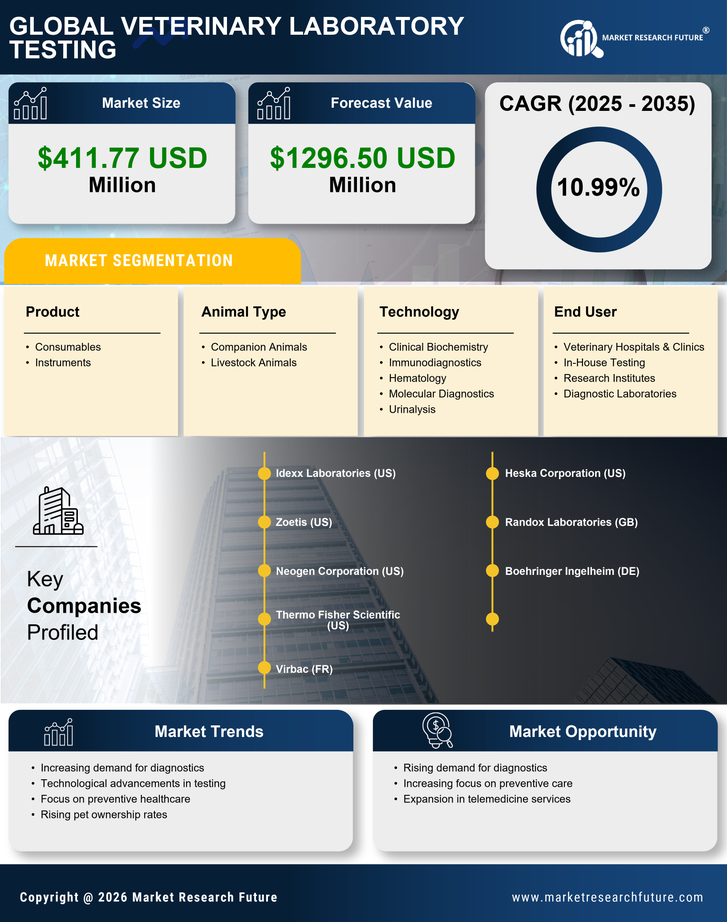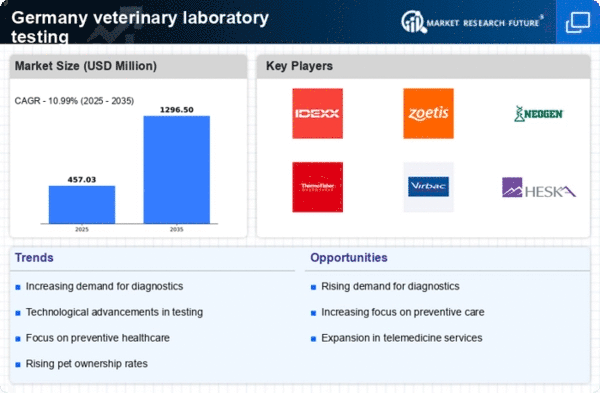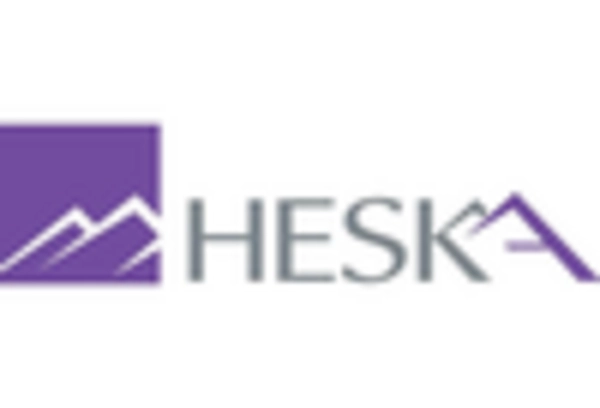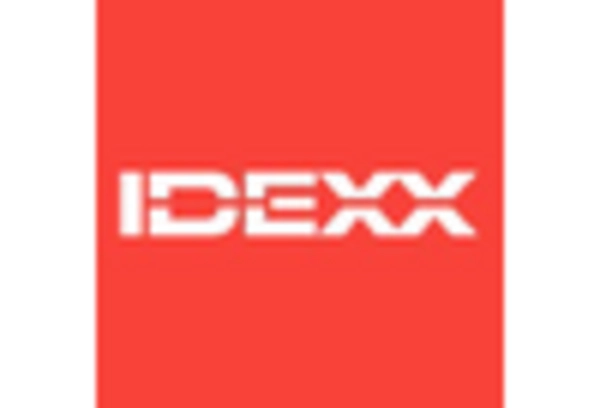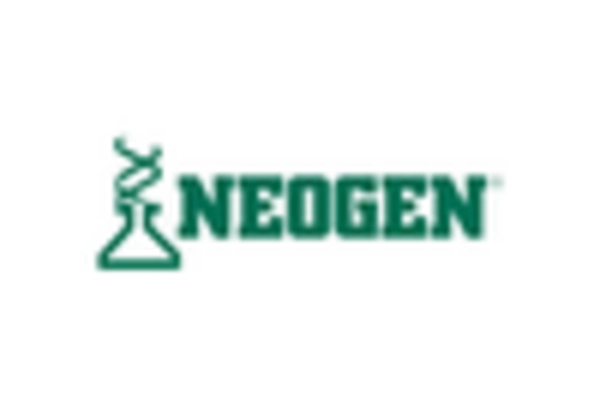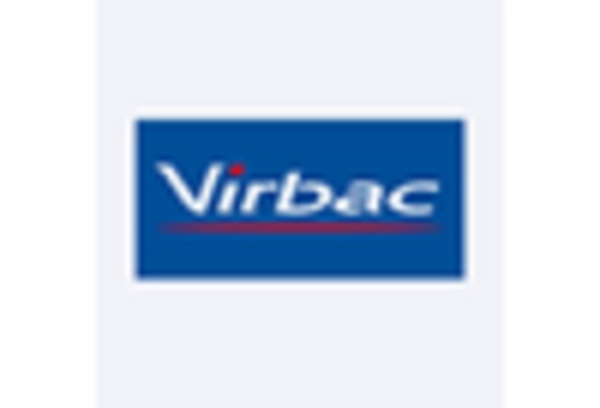Rising Demand for Preventive Care
The veterinary laboratory-testing market in Germany is experiencing a notable increase in demand for preventive care services. Pet owners are becoming increasingly aware of the importance of regular health check-ups and screenings for their animals. This trend is driven by a growing understanding of the benefits of early disease detection, which can lead to better health outcomes and reduced veterinary costs in the long run. As a result, veterinary laboratories are expanding their testing capabilities to meet this rising demand. In 2023, the market for preventive veterinary services in Germany was estimated to be worth approximately €1.5 billion, indicating a robust growth trajectory. This shift towards preventive care is likely to continue, further propelling the veterinary laboratory-testing market forward.
Increased Awareness of Animal Health
There is a growing awareness of animal health and welfare among the German population, which is positively influencing the veterinary laboratory-testing market. Pet owners are becoming more educated about the health needs of their animals, leading to a higher demand for laboratory testing services. This heightened awareness is often fueled by social media, veterinary campaigns, and educational programs that emphasize the importance of regular health assessments. In 2024, surveys indicated that over 70% of pet owners in Germany prioritize their pets' health, which has resulted in increased spending on veterinary services, including laboratory tests. This trend is expected to continue, thereby supporting the growth of the veterinary laboratory-testing market.
Growth in Companion Animal Population
The increasing population of companion animals in Germany is a key driver of the veterinary laboratory-testing market. As more households adopt pets, the demand for veterinary services, including laboratory testing, is expected to rise correspondingly. In 2025, it is projected that the number of pet dogs and cats in Germany will exceed 30 million, creating a larger customer base for veterinary practices. This growth is accompanied by a trend towards higher spending on pet healthcare, with owners willing to invest in advanced diagnostic tests to ensure their pets' well-being. Consequently, the veterinary laboratory-testing market is likely to benefit from this expanding demographic, as more pet owners seek comprehensive health assessments for their animals.
Advancements in Diagnostic Technologies
Technological innovations are significantly shaping the veterinary laboratory-testing market in Germany. The introduction of advanced diagnostic tools, such as PCR (Polymerase Chain Reaction) and next-generation sequencing, has enhanced the accuracy and speed of disease detection in animals. These technologies allow for the identification of pathogens at a molecular level, which is crucial for effective treatment and management of animal health. Furthermore, the integration of artificial intelligence in diagnostic processes is streamlining operations and improving test outcomes. As of 2025, it is projected that the market for diagnostic technologies in veterinary laboratories will grow by approximately 20%, reflecting the increasing reliance on sophisticated testing methods. This trend underscores the importance of innovation in driving the veterinary laboratory-testing market.
Regulatory Compliance and Quality Standards
The veterinary laboratory-testing market in Germany is significantly influenced by stringent regulatory compliance and quality standards. The German government, along with the European Union, has established rigorous guidelines to ensure the safety and efficacy of veterinary diagnostics. Laboratories must adhere to these regulations, which often require regular audits and certifications. This focus on quality not only enhances the credibility of testing services but also fosters consumer trust. As of 2025, it is estimated that compliance-related expenditures for veterinary laboratories will account for approximately 15% of their operational costs. This regulatory landscape is likely to drive investments in quality assurance processes, thereby impacting the veterinary laboratory-testing market positively.
